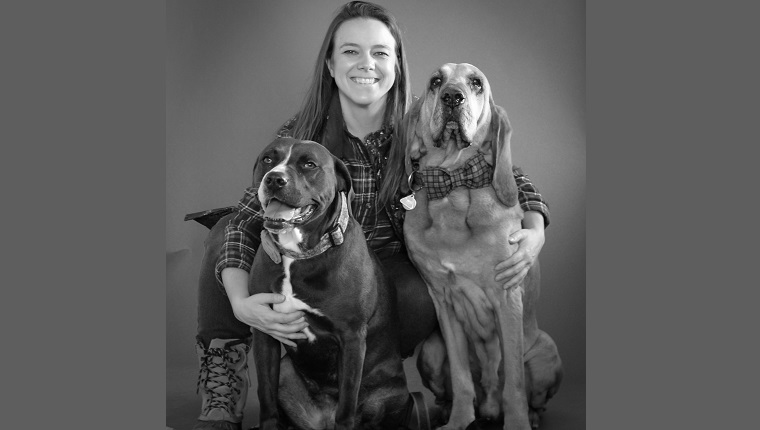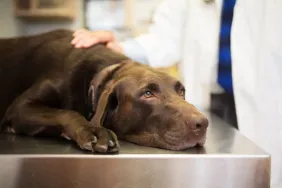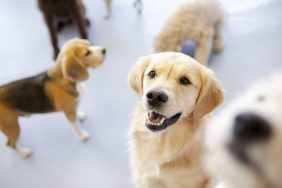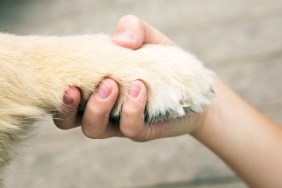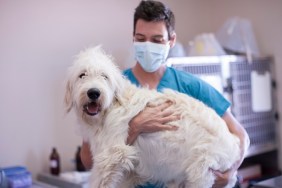The One Health Act has been making the news in the human and animal health world alike. The legislation is an effort to unify research and advancements to stop disease spread. It’s especially relevant now for zoonotic diseases like COVID-19.
Zoonotic diseases are illnesses that we share and pass between species. So if your dog gets sick and passes their illness to you, that’s an example of a zoonotic disease.
With an ongoing pandemic, our federal government departments should work together to understand and prevent diseases like COVID-19 from spreading. Sometimes they do, but sometimes it doesn’t happen as smoothly as it should. That’s because there isn’t a set framework for those groups to share information.
The One Health Act seeks to change that and, thus, improve our ability to collaborate and address outbreaks. Dr. Dana Varble, NAVC’s Chief Veterinary Officer, shared with DogTime why she has been such a champion for the act.
What The One Health Act Will Do, And Why We Need It
AMANDA: What is the One Health Act?
DR. VARBLE: The One Health Act is legislation that creates the framework for federal agencies and departments to collaborate and create a unified plan for addressing disease outbreaks like COVID-19.
This plan, called the One Health Framework, will outline how government entities like the Centers for Disease Control, the Department of Health and Human Services, the Department of Agriculture, and the State Department share information and engage in fieldwork to help prevent, prepare for, and respond to disease outbreaks.
AMANDA: Why is the One Health Act necessary?
DR. VARBLE: Animal and human diseases often overlap and are shared! From cancer to diabetes, it is often surprising how many ailments we share with our animal companions.
One prominent and current example is zoonotic diseases. These are illnesses that pass from animals to humans and have been around for as long as people and animals have lived, played, and interacted with each other.
Millions of households in the US have one or more pets. Close contact with animals and their environment provides more opportunities for zoonotic diseases to occur, and [they’re] not uncommon.
With the current COVID-19 global pandemic, awareness and the need to take unified action are on the top of everyone’s minds.
Being able to implement a single framework for healthcare will better prevent and respond to the spread of zoonotic disease and other diseases that humans, animals, and even our environments share.
There are several federal agencies whose jurisdictions touch on animals, disease outbreaks, our food system, international trade relations, and general public health. Currently, these agencies do not coordinate their efforts as well as they could.
To improve communication, sharing of data, and overall response, Congress is asking these agencies to create a plan to address a possible zoonotic disease outbreak.
How Is The Act Going To Help With Diseases Like COVID-19?
AMANDA: How do you think this act will help animals and humans?
DR. VARBLE: This [act] is important to establish because it can give human and veterinary healthcare providers, biologists, and conservationists more information on how diseases are developing, being detected, changing, being treated, and even being cured by a wide variety of scientists on the front lines.
For example, as medications are being developed for one purpose in human health care, it is not unusual to find a similar or separate use in veterinary medicine for animal care.
AMANDA: Can you explain how the One Health Act might prevent zoonotic transmissions, and especially prevent a pandemic?
DR. VARBLE: Many federal agencies are collecting health data in the US. Often, this information is not shared between agencies. Consequently, trends are not detected early or information on potential disease outbreaks isn’t shared widely.
Sometimes when we see infectious diseases begin to spread, they have already been present among animals, in the same form or a different form, before they reach humans.
Once an outbreak has been detected, the federal response may be disjointed because a coordinated plan wasn’t in place.
The One Health Act will help us identify and further understand these diseases and their potential through shared data. We will then be better prepared with a response plan to prevent future pandemics by observing and analyzing trends to provide a quicker and more thorough response.
So Do We Have To Worry About Getting Diseases From Our Pets?
AMANDA: Can you please explain the difference between the dangers of zoonotic disease transmission from wildlife versus worrying about catching things from our domesticated pets, especially in light of COVID-19?
DR. VARBLE: Well, one of the most important factors in disease transmission is the degree of contact we have with an infected person or animal, as we are all very familiar with now!
In many ways, because we are in close contact with our pets for long periods of time, our risk of catching a contagious disease from our pets is higher than wildlife that we have minimal contact with.
What that means is that good parasite control (fleas, ticks, intestinal worms) for our pets and good handwashing for us as humans can truly minimize, in fact nearly eliminate, that risk.
Wild animals are not vaccinated, dewormed, or on flea medication. That means that they potentially carry more illnesses that we can catch. It is very important to contact authorities to assist you if you find any injured wildlife, and always wash your hands very well if you come into contact with wildlife.
How Can We Help Pass The One Health Act?
AMANDA: Who needs to take further action to make the One Health Act successful?
DR. VARBLE: People need to reach out to their elected leaders in Congress about the importance of taking the threat of future zoonotic disease outbreaks seriously and help them understand that this legislation is an important step in improving the federal government’s preparation and response to future outbreaks.
AMANDA: What can we do to support the One Health Act?
DR. VARBLE: Contact your Members of Congress. Ask them to support HR 3771 (Advancing Emergency Preparedness Through One Health Act of 2019). It’s easy to take action today by visiting NAVC.com/embrace.
AMANDA: Thank you so much for all of this great information, as well as your time, Dr. Varble! Good luck to you and your colleagues on getting traction on this act!
DR. VARBLE: Thank you!
Do you think the One Health Act will help us prevent diseases in humans and animals? What else do you think we can do to keep ourselves and our pets safe? Let us know in the comments below!
